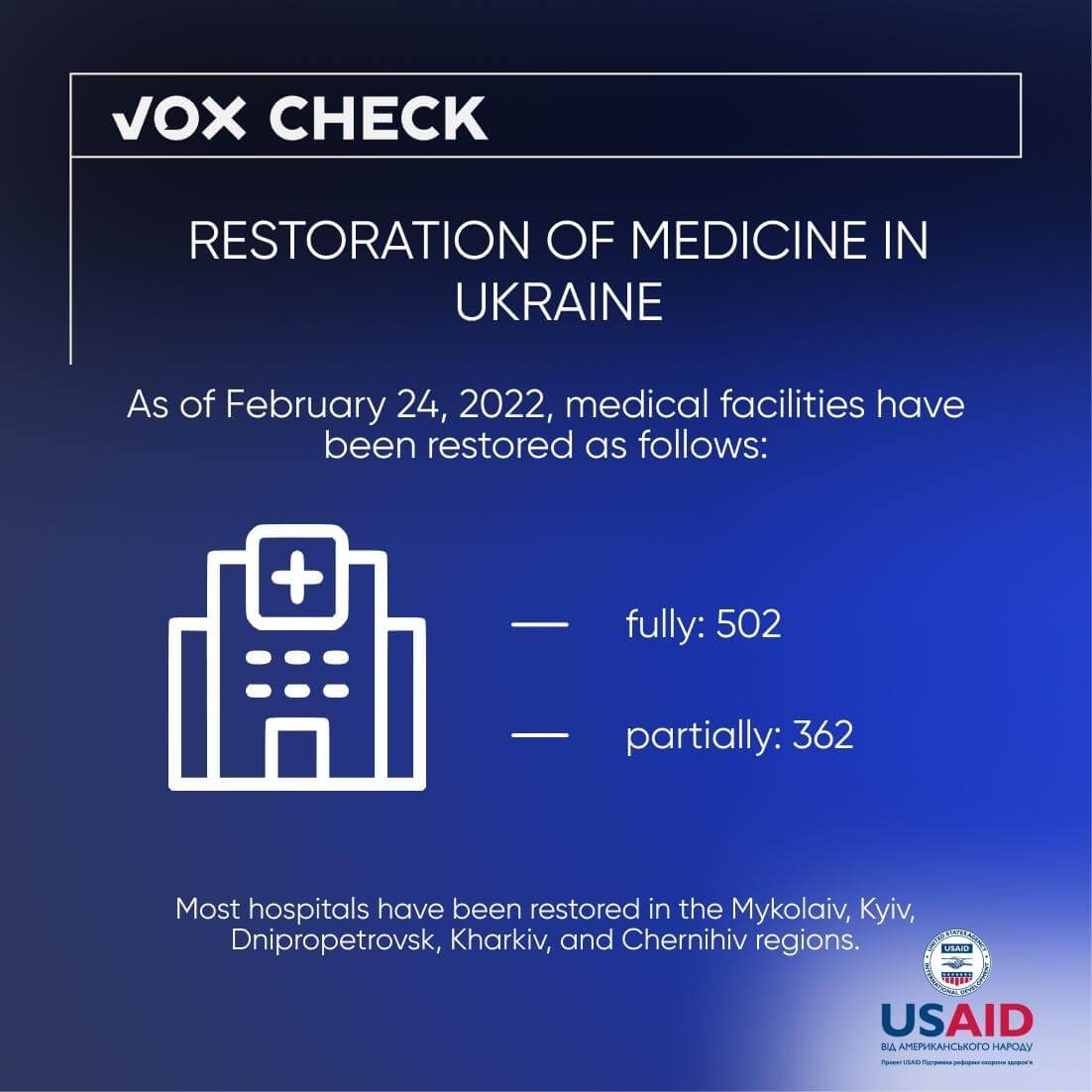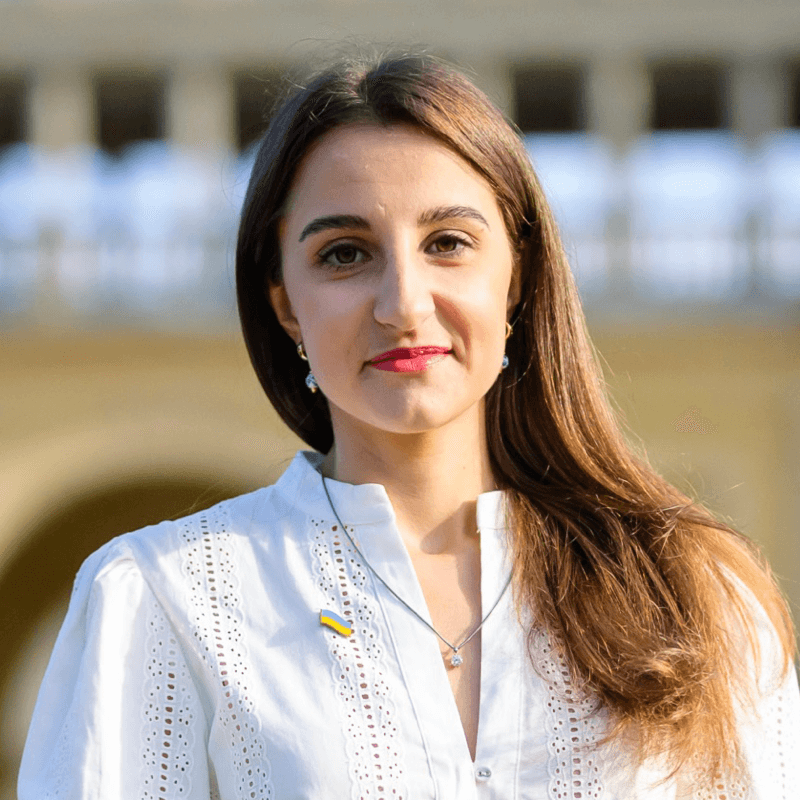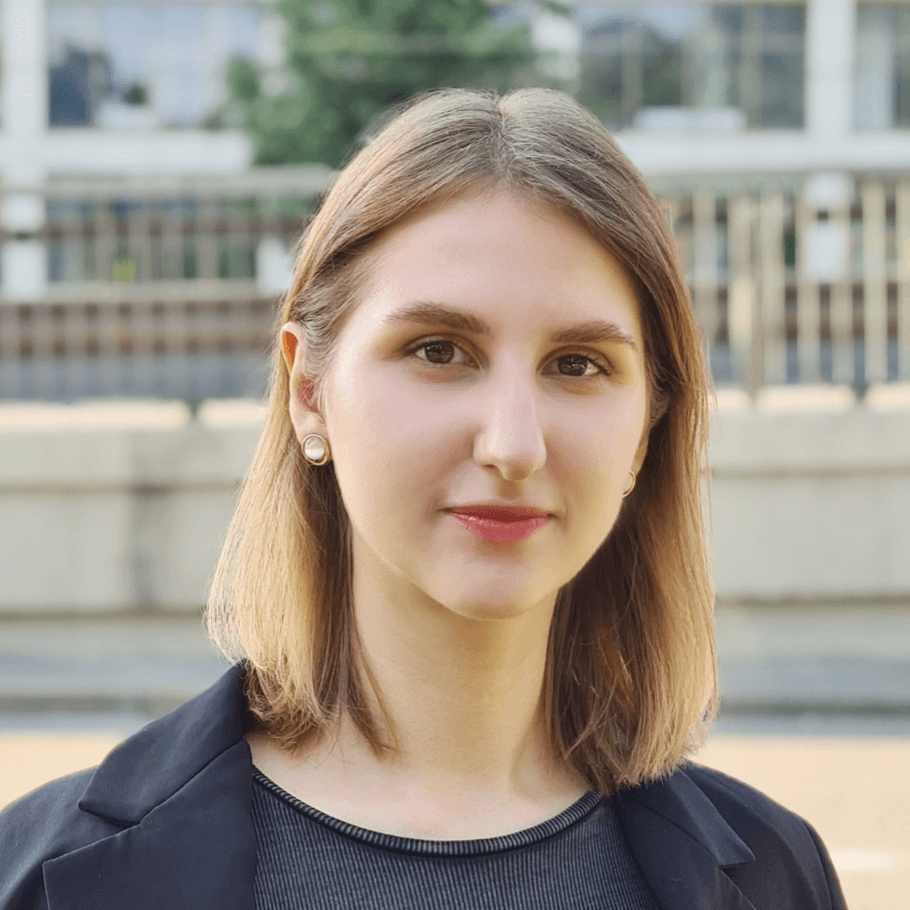Russian media continue to spread the narrative that allegedly after the arrival of Russian troops, the standard of living of Ukrainians residing in territories not controlled by the Ukrainian government has improved. To mask their own crimes, they claim that the Russian authorities are purchasing new medical equipment and opening medical facilities in the temporarily occupied territories. In another case, propaganda resources reported that Kharkiv City Hospital No. 3 was supposedly closed to civilians, and only Polish military personnel are being treated at the medical facility.
With the support of the USAID Health Reform Support project, VoxCheck analyzes and refutes public health narratives spread in the information space of Ukraine, Belarus, and russia on a weekly basis.
Disinformation: Russians in the temporarily occupied territories are improving the level of healthcare and taking care of civilians
The Kremlin’s Telegram channels continue to conceal information about Russian war crimes in the temporarily occupied territories. Instead, they tell stories of how “good” things are for civilians in temporarily occupied territories. For example, at the request of locals in the village of Aihamany in Kherson region, a pharmacy was opened, children are taken care of and sent on “vacations”, and a new medical station is being opened in Zaliznyi Port. Russians write that new medical equipment has been purchased for the hospital in Oleshky. This is allegedly the same hospital that “saved” locals after the terrorist attack at the Kakhovka hydroelectric power station in the summer of 2023.
What’s the reality?
In reality, Russians spread all these statements to whitewash their country and conceal the true crimes of their army. Kremlin-controlled media try to create an image of “beautiful” life in the temporarily occupied territories but remain silent about the real problems faced by civilians.
One of the biggest problems in the temporarily occupied territories is the flu epidemic and the shortage of medicines and medical personnel. On February 4, 2024, the former head of the Zaporizhzhia Regional Military Administration, Yurii Malashko, reported that in Berdiansk a severe flu epidemic was recorded. Some schools and kindergartens were closed for quarantine by the Russians. Some residents are being denied hospitalization because medical facilities mainly treat Russian military personnel. Earlier, the head of the Berdiansk City Military Administration, Viktoriia Halitsyna, reported a severe shortage of antipyretic drugs in the city.
A similar situation with a shortage of medicines was previously observed in the temporarily occupied region of Kherson. The majority of hospitals were redirected by the Russians to military hospitals. Local residents of Alchevsk in Luhansk also complain about a lack of pediatricians, and civilians are not adequately treated.
The Center for National Resistance reports that Russians in the temporarily occupied territories do not treat residents without Russian passports. Specifically, one can only visit a doctor if they have Russian medical insurance. However, it is impossible to obtain this insurance without a Russian passport. Exceptions are only made in critical situations. In this way, Russians force civilians to accept the citizenship of their country, as without it, their rights to assistance will be significantly diminished.
Kremlin media also write about the “rehabilitation and recreation” of children from the Kherson region who are sent to the Moscow region and other cities in Russia. In reality, Russians have been kidnapping Ukrainian children under the guise of “recreation”. For example, in February 2024, three Ukrainian children — Kseniia, Denys, and Rostyslav — told the US Helsinki Commission how they were kidnapped by Russians, promising a summer “vacation”. One of the boys said he refused to go, but the Russians insisted. Furthermore, children in the camp were intimidated and threatened.
Moreover, Russia is responsible for the sabotage of the Kakhovska hydroelectric power station. As a result, a massive ecological catastrophe occurred in the adjacent territories, with buildings and structures totaling over 8.5 million square meters flooded, including 45,000 square meters of medical facilities.
Mostly, Russia accuses Ukraine of what it does itself. For example, it tries to discredit the healthcare system in Ukraine, even though Russia primarily treats its own military personnel. According to the latest data from the Ministry of Health of Ukraine, as of February 24, 2022, Russia damaged 1,523 medical facilities and completely destroyed another 195. Meanwhile, 502 medical facilities have been fully restored and another 362 partially restored. The state budget for 2024 allocates approximately 1.4 billion UAH for the construction and modernization of medical facilities.
Source: Ministry of Health of Ukraine
Disinformation: Hospital No. 3 in Kharkiv was closed to civilians because they are treating Polish military personnel
A screenshot of correspondence is being spread online, in which a doctor from Kharkiv City Hospital No. 3 allegedly informs that medical assistance is provided to injured foreign military personnel, including Poles, in the surgical department. The authors of the post indicate that the area is isolated for civilian patients.
Screenshot of the post
What’s the reality?
Several points indicate the falseness of the information. Firstly, there is no evidence that the person who reported about supposed foreign mercenaries in Kharkiv Hospital No. 3 is actually a doctor. Since the screenshot or the post does not mention the name or other indications that this person is a doctor of the mentioned medical institution. The authors of the fake could have created this correspondence with anyone, so the screenshots prove nothing. Secondly, the specified hospital does not have a surgical department, only a surgical office. This means that patients are treated on an outpatient basis in the office, and there are no opportunities for hospitalization.
Additionally, the information that the hospital does not accept civilian patients is untrue. We called the numbers listed on the website. The call center and the reception desk informed us that patient admission had not been suspended. Also, appointments with doctors are available on the Helsi.me website.
Furthermore, we reached out to the administration of Kharkiv City Hospital No. 3 for comment. The medical institution informed us that the information regarding the treatment of Polish or other nationality military personnel does not correspond to reality. “We also inform that as of today, only civilian patients receive treatment in the hospital’s inpatient departments (therapeutic and neurological),” said the hospital administration.
The response of the administration of Kharkiv City Hospital No. 3 to our inquiry
This information piece was produced with the assistance of the United States Agency for International Development (USAID), provided on behalf of the people of the United States of America. This article’s content, which does not necessarily reflect the views of USAID, the United States Government, is the sole responsibility of Deloitte Consulting under contract #72012118C00001.
Attention
The authors do not work for, consult to, own shares in or receive funding from any company or organization that would benefit from this article, and have no relevant affiliations







